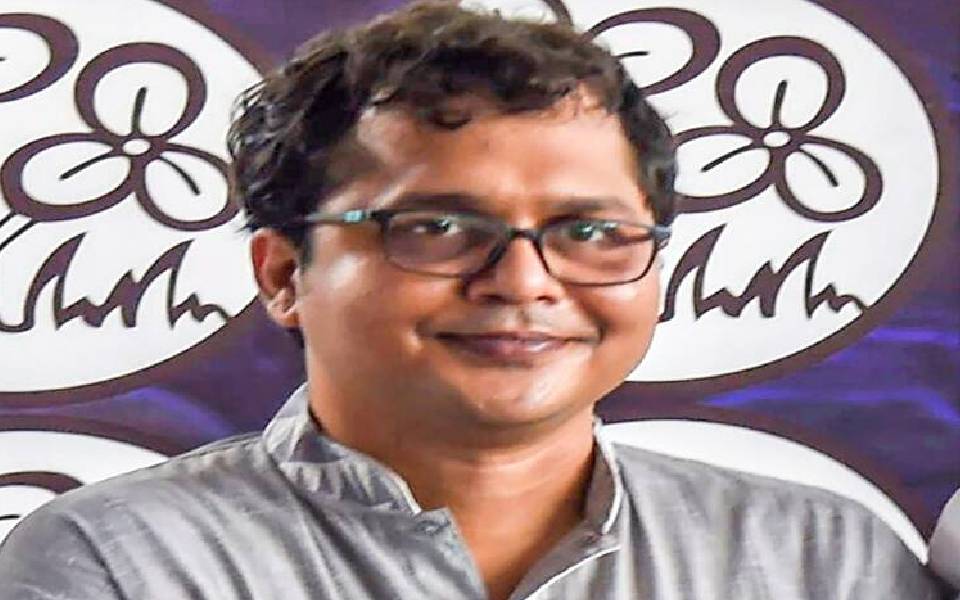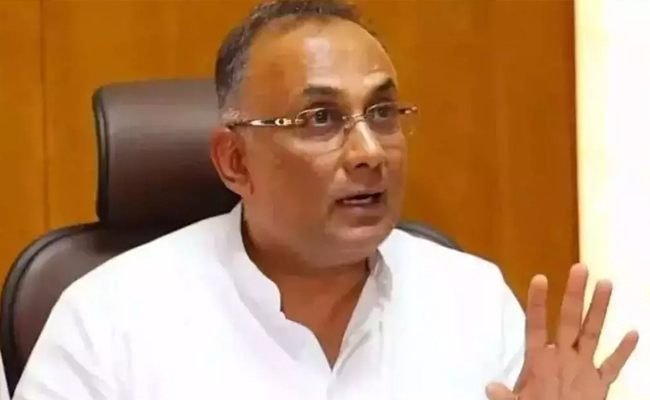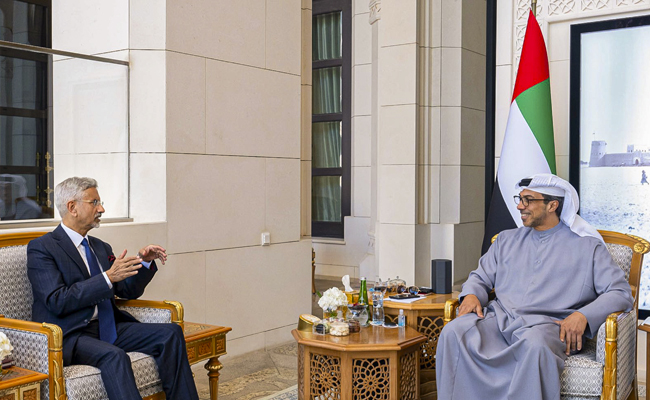Kolkata, Jun 11: Senior TMC leader Saket Gokhale on Tuesday claimed that three BJP MPs from West Bengal are in touch with the party and the saffron party's tally in Parliament would soon come down to 237.
The comments drew sharp reactions from the West Bengal BJP unit, which dubbed the claim as "baseless" and asserted that the state unit stands united.
The Trinamool Congress secured 29 out of 42 Lok Sabha seats in West Bengal.
The BJP, in contrast, faced a significant setback, dropping to 12 seats from the 18 it won in 2019.
"As of today, the numbers in the Lok Sabha are BJP: 240 INDIA: 237. Three BJP MPs in West Bengal are in touch with us and there will be a nice surprise soon. After that, BJP: 237 INDIA: 240.
"Modi's creaky coalition is a temporary structure which isn't going to last very long," Gokhale, a Rajya Sabha MP, posted on X.
In the just-concluded Lok Sabha polls, the BJP with 240 seats fell short of a majority but the NDA secured the mandate with 293 seats. The Congress bagged 99 seats while the INDIA bloc got 234 seats. Following the polls, two Independents who won have also pledged support to the Congress, taking the INDIA bloc tally to 236.
Reacting to Gokhale's claim, BJP state spokesperson Samik Bhattacharya said the TMC is "daydreaming".
"Since 2014, the TMC has been daydreaming of becoming the pivotal force in the union government but its hopes were dashed not once but thrice. The BJP and NDA stand united. No BJP MP from Bengal is in touch with the TMC," he said.
As of today, the numbers in the Lok Sabha are
— Saket Gokhale MP (@SaketGokhale) June 11, 2024
BJP: 240
INDIA: 237
3 BJP MPs in West Bengal are in touch with us & there will be a nice surprise soon.
After that,
BJP: 240
INDIA: 240
Modi’s creaky coalition is a temporary structure which isn’t going to last very long.
Let the Truth be known. If you read VB and like VB, please be a VB Supporter and Help us deliver the Truth to one and all.
New Delhi: A bill to set up a 13-member body to regulate institutions of higher education was introduced in the Lok Sabha on Monday.
Union Education Minister Dharmendra Pradhan introduced the Viksit Bharat Shiksha Adhishthan Bill, which seeks to establish an overarching higher education commission along with three councils for regulation, accreditation, and ensuring academic standards for universities and higher education institutions in India.
Meanwhile, the move drew strong opposition, with members warning that it could weaken institutional autonomy and result in excessive centralisation of higher education in India.
The Viksit Bharat Shiksha Adhishthan Bill, 2025, earlier known as the Higher Education Council of India (HECI) Bill, has been introduced in line with the National Education Policy (NEP) 2020.
The proposed legislation seeks to merge three existing regulatory bodies, the University Grants Commission (UGC), the All India Council for Technical Education (AICTE), and the National Council for Teacher Education (NCTE), into a single unified body called the Viksit Bharat Shiksha Adhishthan.
At present, the UGC regulates non-technical higher education institutions, the AICTE oversees technical education, and the NCTE governs teacher education in India.
Under the proposed framework, the new commission will function through three separate councils responsible for regulation, accreditation, and the maintenance of academic standards across universities and higher education institutions in the country.
According to the Bill, the present challenges faced by higher educational institutions due to the multiplicity of regulators having non-harmonised regulatory approval protocols will be done away with.
The higher education commission, which will be headed by a chairperson appointed by the President of India, will cover all central universities and colleges under it, institutes of national importance functioning under the administrative purview of the Ministry of Education, including IITs, NITs, IISc, IISERs, IIMs, and IIITs.
At present, IITs and IIMs are not regulated by the University Grants Commission (UGC).
Government to refer bill to JPC; Oppn slams it
The government has expressed its willingness to refer it to a joint committee after several members of the Lok Sabha expressed strong opposition to the Bill, stating that they were not given time to study its provisions.
Responding to the opposition, Parliamentary Affairs Minister Kiren Rijiju said the government intends to refer the Bill to a Joint Parliamentary Committee (JPC) for detailed examination.
Congress Lok Sabha MP Manish Tewari warned that the Bill could result in “excessive centralisation” of higher education. He argued that the proposed law violates the constitutional division of legislative powers between the Union and the states.
According to him, the Bill goes beyond setting academic standards and intrudes into areas such as administration, affiliation, and the establishment and closure of university campuses. These matters, he said, fall under Entry 25 of the Concurrent List and Entry 32 of the State List, which cover the incorporation and regulation of state universities.
Tewari further stated that the Bill suffers from “excessive delegation of legislative power” to the proposed commission. He pointed out that crucial aspects such as accreditation frameworks, degree-granting powers, penalties, institutional autonomy, and even the supersession of institutions are left to be decided through rules, regulations, and executive directions. He argued that this amounts to a violation of established constitutional principles governing delegated legislation.
Under the Bill, the regulatory council will have the power to impose heavy penalties on higher education institutions for violating provisions of the Act or related rules. Penalties range from ₹10 lakh to ₹75 lakh for repeated violations, while establishing an institution without approval from the commission or the state government could attract a fine of up to ₹2 crore.
Concerns were also raised by members from southern states over the Hindi nomenclature of the Bill. N.K. Premachandran, an MP from the Revolutionary Socialist Party representing Kollam in Kerala, said even the name of the Bill was difficult to pronounce.
He pointed out that under Article 348 of the Constitution, the text of any Bill introduced in Parliament must be in English unless Parliament decides otherwise.
DMK MP T.M. Selvaganapathy also criticised the government for naming laws and schemes only in Hindi. He said the Constitution clearly mandates that the nomenclature of a Bill should be in English so that citizens across the country can understand its intent.
Congress MP S. Jothimani from Tamil Nadu’s Karur constituency described the Bill as another attempt to impose Hindi and termed it “an attack on federalism.”



_vb_22.jpeg)

